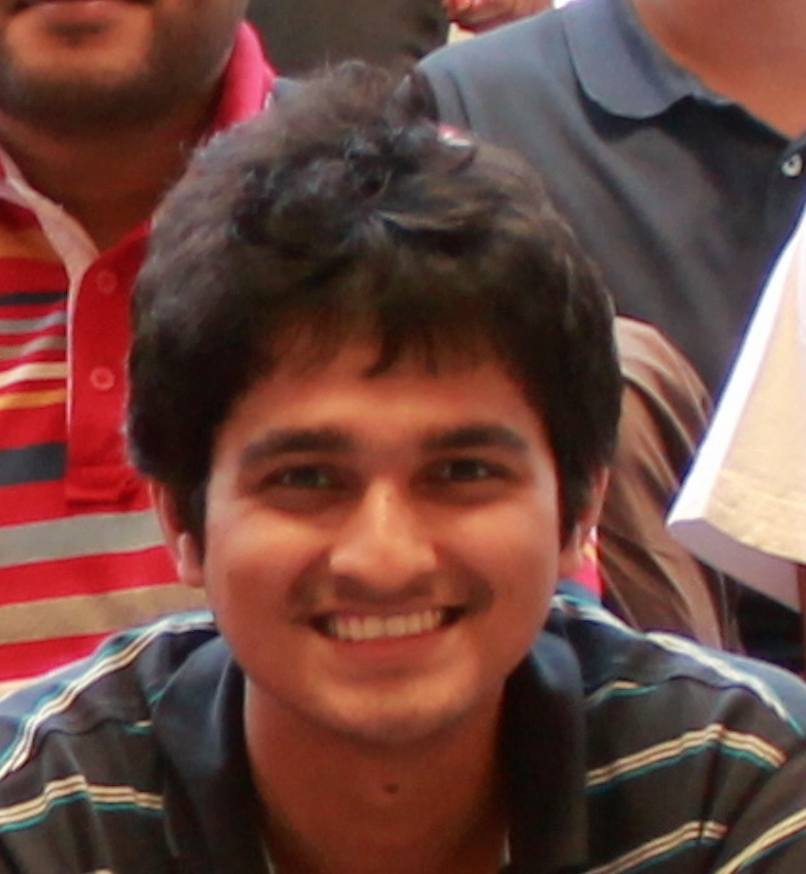My story with Haskell. Thus far
31 Dec 2014
Functional Paradigm is the Queen of Programming Paradigms, and Haskell is the Queen of Functional Languages
- Hypothetical Gauss in the 21st Century
Chapter 1. Haskell knocks the door
In my final year at college, I was starting to pump out code and I was in search for a tool to help me manage all those terminal instances. A friend suggested xmonad, a tiling window manager. I played around with it for a week or so, but I eventually let it go. While tinkering with xmonad, I discovered it was one of the more popular Haskell program out there. I had not heard of Haskell before. Now, I had.
Chapter 2. Infatuation
Haskell introduced me to functional programming, and I got hooked on to it. I had casually seen Lisp before, but code written in Lisp has that unfortunate overload of (((round) brackets)), and I had immediately taken my eyes off it. Haskell has a beautiful syntax. If you have never seen Haskell before, look at the code below. The program shown computes the factors of a given number. This might not be the most efficient implementation, but heck, just look at it.
factors :: Integer -> [Integer]
factors n = temp n [2..(n-1)]
where
temp 1 xs = []
temp _ [] = []
temp k (x:xs) = if (mod k x == 0)
then x : temp (k `div` x) (x:xs)
else temp k xs
main = do
print $ factors 252
This would print [2,2,3,3,7] on the screen. For reference, the Python equivalent (in the functional paradigm) for this code looks like this
def factors(n):
def temp(k, x_xs):
if (k == 1):
return []
elif not x_xs:
return []
else:
x = x_xs[0]
if (k % x == 0):
return ([x] + temp(k/x, x_xs))
else:
return (temp(k, x_xs[1:]))
return temp(n, [i for i in range(2, n-1)])
if __name__ == "__main__":
print factors(252)
You might like Python just as I do, but I know you agree with me: functional code in Python looks rather ugly.
I am fond of mathematics & Haskell is Oh, so Mathematical!. Say we want to find solutions to the Linear Diophantine Equation 5*x + 7*y = 100 where x and y are positive integers. For Haskell, this is a trivial coin toss.
main = print [(x,y) | x <- [1..100], y <- [1..100], 5*x + 7*y == 100]
Everything in Haskell was so different, I felt I was learning programming for the first time ever! For example, here is a glimpse of Haskell’s type system.
class Complex:
def __init__(x, y):
assert isinstance(x, float)
assert isinstance(y, float)
self.x = x
self.y = y
def __add__(self, other):
c = Complex(0, 0)
c.x = self.x + other.x
c.y = self.y + other.y
return c
is equivalent to
data Complex = Complex {x :: Double, y :: Double} deriving(Num)
instance Num (Complex) where
(+) (Complex x1 y1) (Complex x2 y2) = Complex (x1+x2) (y1+y2)
This is similar to saying that Complex is a subclass of Num & that + is a virtual function of the Num class.
Chapter 3. Interlude
Before Haskell entered my life, I had just begun to gain some confidence over my programming skills. Haskell told me how ignorant I was. Haskell lives in a parallel universe & its not just about functional programming. Other languages such as Lisp and ML are functional but are much more sobre than Haskell. Haskell, in its untiring aim to be a pure functional language is much more difficult to comprehend.
After a few chapters of Learn you a Haskell (which btw, is a fantastic resource to learn Haskell), I met functors, applicative functors & monads. I was bowled. More so because the infinite web tutorials on monads indicated that monads must be somewhat difficult. I had to take a break from Haskell. I was probably not prepared yet to see monads in its eyes.
Chapter 4. Reunion
Fast forward an year. At work, my primary language was Python. By now, iterators, decorators, generators were in my Python toolbox. I had seen elements of functional & lazy programming in Python by now. Occasionally, I started to come across blog posts which talked about itertools & how Haskell had influenced Python. Nostalgia. I was back on Haskell in my after office hours.
Chapter 5. Love
That’s today. Here I am, madly in love with this language. Having attempted (and partially failed) to build complex software systems in C++ and Python, I can now appreciate Haskell’s purity. I had previously written on the importance of mathematics in programming; for complicated programs, function composition seems to be the way to write programs!
I am a still a fledgeling in Haskell but I positively hope Haskell to supplant Python as my primary language. I like Python, but Haskell is in a different league, a better league. Reading about Haskell is a very humbling experience. Many a times, when Haskell becomes too heavy for me, I almost tend to leave it and go back to the more manageble languages - but I keep coming back to Haskell to save my honor. This article is a perfect reflection of my emotions with Haskell. It seems my story with Haskell is going to be pretty darn long!
Tweetcomments powered by Disqus
